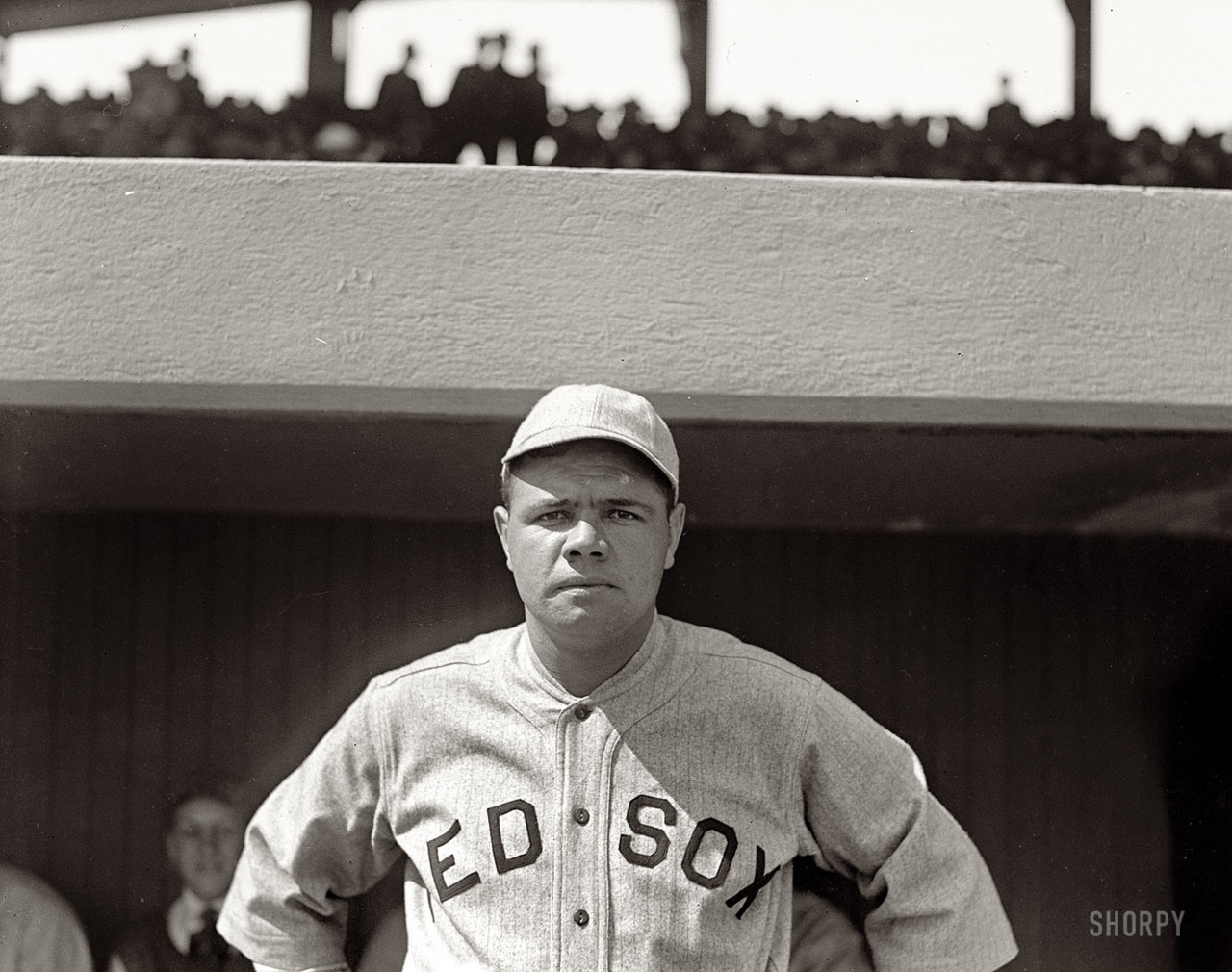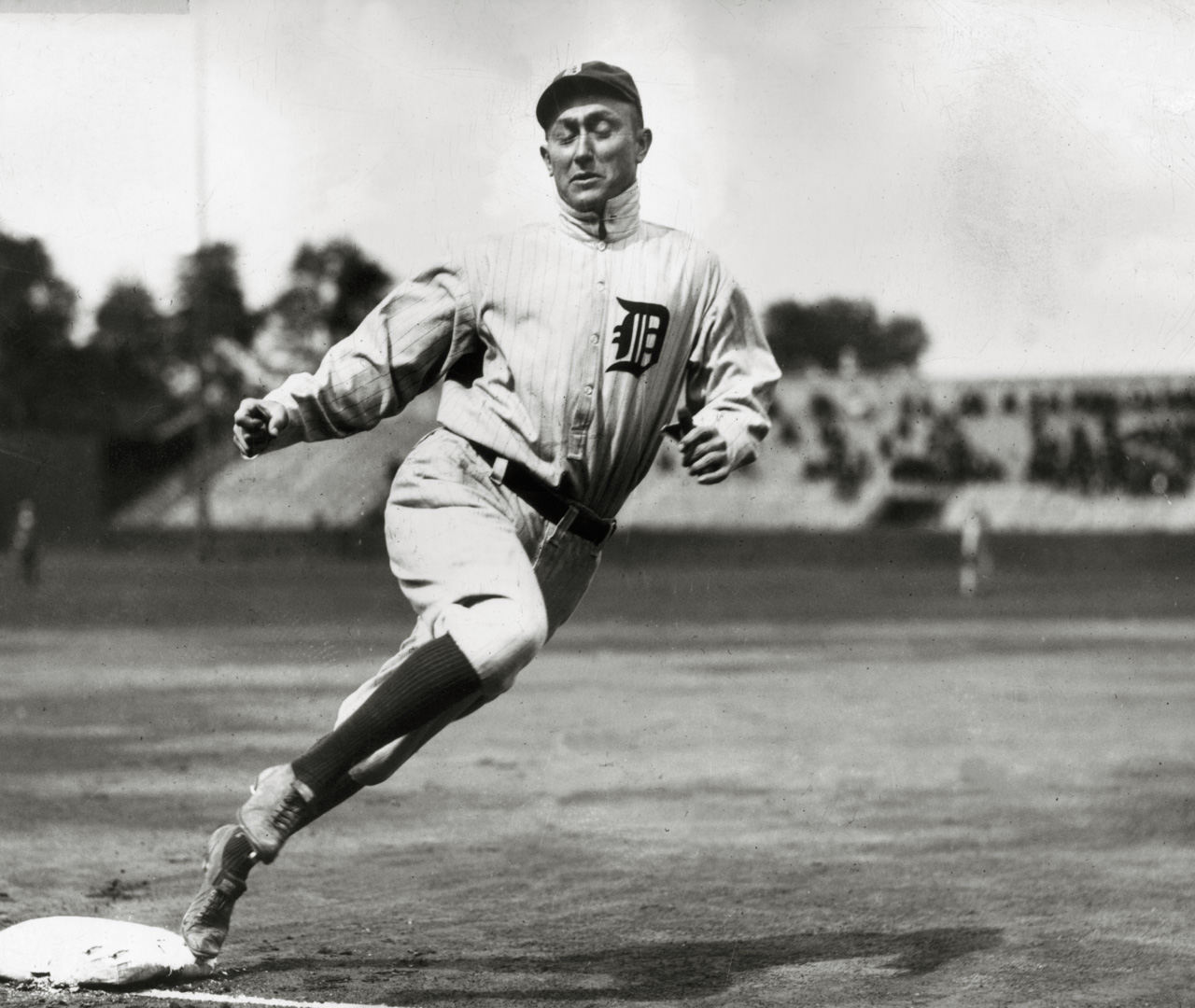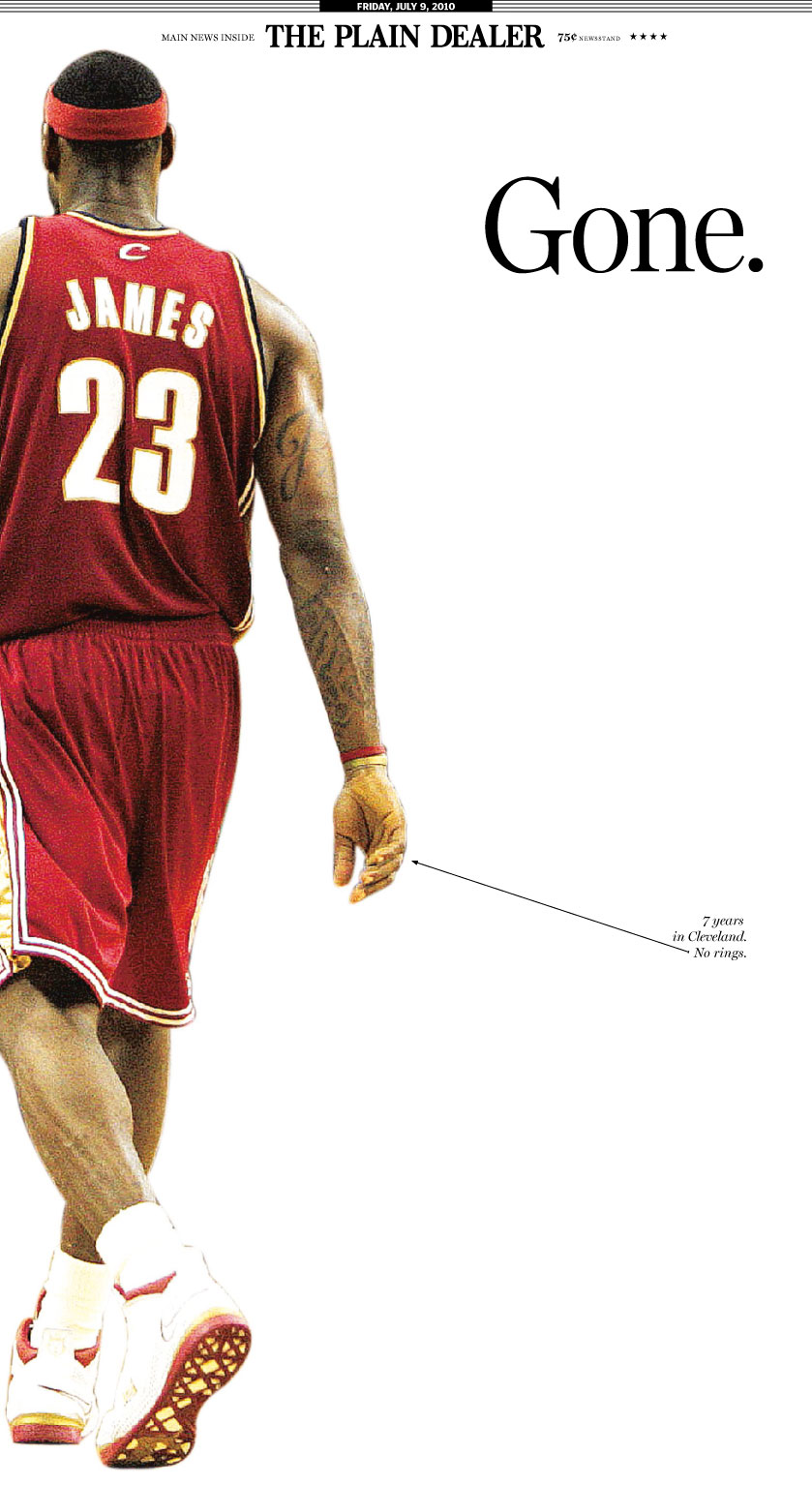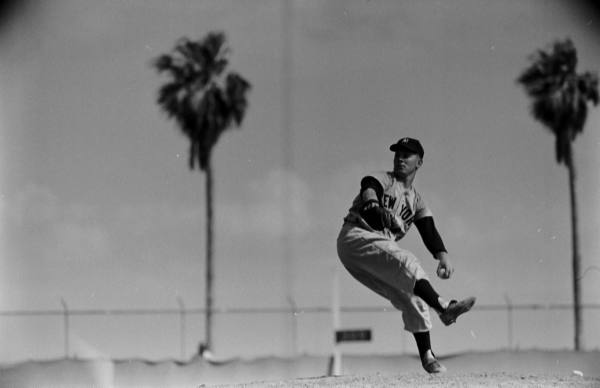
Matty McIntyre, left fielder, Philadelphia A’s, 1901. Probably taken at Columbia Park in Philadelphia, the first home of the A’s. (via George Eastman House)
Official website of the author

Matty McIntyre, left fielder, Philadelphia A’s, 1901. Probably taken at Columbia Park in Philadelphia, the first home of the A’s. (via George Eastman House)

Via Shorpy

Army-Navy game, Polo Grounds, New York, 1916. (via)

It does the more surprise me therefore that so many thousand people should be possessed with the childish passion of desiring so often to see a parcel of horses gallop and men standing upright in their chariots. If indeed it were the swiftness of the horses or the skill of the men that attracted them, there might be some pretense of reason for it. But it is the dress they like, it is the dress that takes their fancy. And if, in the midst of the course and contest, the different parties were to change colors, their different partisans would change sides and instantly desert the very same men and horses whom just before they were eagerly following with their eyes, as far as they could see, and shouting out their names with all their might. Such mighty charms, such wondrous power reside in the color of a paltry tunic!
— Pliny the Younger, around 109 A.D.
Seinfeld said it better, but he didn’t say it first. Interesting thought: what if the Red Sox and Yankees players exchanged uniforms one day?
More about the chariot races of ancient Rome here.

There is not much left to say about the LeBron James debacle. There is enough harrumphing already about James’s narcissism. (Good examples here, here, here or, well, anywhere you look today.)
But at least one good thing came out of it: this memorable front page of the Cleveland Plain Dealer. What a brilliant minimalist design. Great use of white space. Smart idea to position the image at the left margin to open up even more empty space in the center. The one-word, unbolded headline with a dainty little period to emphasize its brevity and completeness, set lower than an ordinary headline, in that sea of white. This is essentially a design for a poster, not a newspaper. It throws out all the usual rules for newspaper layout: no grids, no columns, minimal text. And it works beautifully. The simplicity eloquently captures what Clevelanders must have felt this morning — speechless. Here, less truly is more.
The only nitpick I have is the little arrow pointing at James’s ringless hand. (Click image to view full size.) The caption reads, “7 years in Cleveland. No rings.” Well, yes, but not exactly the whole story. LeBron is the best player on the planet at the moment, rings or no rings. But then, given Cleveland’s misery, maybe that bitter note expresses the city’s mood, too. When you get dumped, you feel hurt but also pissed off, betrayed, and sometimes you need to say stuff like this.
So bravo, Cleveland Plain Dealer! No amount of clever graphic design will save the dead-tree newspaper business in the long run, but who knows? Maybe sophisticated work like this will win readers in the brave new digital world.

It feels like spring in Boston this week (sunny, temps in the sixties), and the weather makes me anxious for baseball. We are several weeks into spring training, a strange limbo period when baseball is being played somewhere far off, with palm trees in the background, but it is just a rumor around here.
This season feels different, though. I am not looking forward to Opening Day the way I used to. Maybe it is just that I am getting older. It is hard to take sports as seriously as I did when I was a kid. A bunch of guys run around with “Boston” or “New York” or “Cleveland” on their shirts — so what?
Also, to a lifelong Red Sox fan, 2004 changed everything. Winning is less urgent now. Losing does not seem to reflect on us personally anymore. Baseball, it turns out, is just a game after all. (If that sounds ridiculous to you, you did not grow up a Red Sox fan.)
But the real disenchantment, I think, came with last year’s Yankee blitzkrieg, culminating in a World Series that felt like a sham, the result seemed so inevitable. The entire playoff tournament was more kabuki theater than baseball: we had to go through the ritual of actually playing out the games before inevitably handing the trophy to the Yankees, but the outcome was never in doubt.
Of course none of this is new. The Yankee dynasties have always been powered by the economic engine of New York City. The team has always spent big and stockpiled star players (except for a hiatus in the 1960s). But for the last decade baseball fans — Yankee fans and Yankee haters alike — were lulled into believing that, whatever advantage the Yankees’ payroll gave them, the playoffs were chancy enough that we could still consider the whole thing … well, not fair, exactly, but fair enough.
The 2009 Yankees ended that little dream. The team was the apotheosis of checkbook baseball. Before the season the Yankees spent over $400 million on three star players — Mark Teixeira (8 years, $180 million), C.C. Sabathia (7/$161), and A.J. Burnett (5/$82.5). Their payroll exceeded $206 million in a year when no other team spent more than $140 million. And then, after a bumpy start to the season, they simply overwhelmed the rest of the league. It was all just so predictable and obvious. Money, winning; cause, effect.
I don’t mean to turn this into an anti-Yankee screed. There is enough of that out there. (Joe Posnanski’s recent rant is a triumph of the form.) My complaint is not with the Yankees, anyway. As their fans correctly point out, they are playing within the rules. They are supposed to do everything they can to win.
Also, let’s be clear: the lack of competitive balance in MLB is also a “Red Sox problem,” and a “Tigers problem” and a “Mets problem.” High payrolls correlate with wins, so all high-payroll teams have an advantage over lower-payroll ones. But no team benefits more than the Yankees for the simple reason that they have the highest payroll by a very wide margin.
No one seriously argues anymore that the system is not unfair. “You can’t buy a World Series, otherwise the Yankees would win every year, which they don’t.” “Look at the small-market teams who have succeeded, like the Rays in 2008.” “Look at how many different teams have won titles over the last ten years, doesn’t that prove the league is balanced?” After last season, you don’t hear these things much. No, you can’t guarantee the result of a baseball season. But to suggest that gathering so many of the best players on one team does not affect the odds is ridiculous.
So Yankee fans (and Red Sox fans, too) make a different argument: the system is unfair, but the inequality is justified. Or perhaps it is more accurate to say, the system distributes players unequally but not unfairly. The Yankees actually deserve an advantage.
Arguments favoring the current unbalanced system generally come in three flavors:
There is a grain of truth to all these arguments, sometimes more than a grain. At the same time, they all feel lawyerly and dishonest. Once you concede that the system is unfair, the rest is details — excuse-making, special pleading.
All of this has been argued to death and, honestly, none of it reaches the real problem.
The real problem with the Yankees’ dominance is that it is utterly repetitive and predictable. It fails as drama. It is a dull story that we’ve heard a thousand times (well, 27). Pro sports, famously, is entertainment, and baseball has become the one thing that entertainment must never be: boring. I am not disgusted with baseball; I’m bored with it. It is a movie I’ve already seen.
Yankee fans have an answer to this complaint, too. The Yankee empire creates a ready-made storyline for every season: who will play David to the Yankees’ Goliath? That was the story that drove the Yankees-Red Sox rivalry for decades, and it is the default story sportswriters have told every year for the last decade when the Yankees lost.
The trouble is that the Yankees’ payroll has grown so enormous and their advantage so overwhelming that nobody really imagines the next decade will play out like the last one. In terms of resources, the Yankees have pulled away from the pack. The team is now so stacked and their spending power in the new stadium so outlandish that, looking forward, it is impossible to maintain even the pretense of competitiveness. Yes, the Yankees may lose some years — hey, you never know. But their advantage has never been greater, and over the course of a long season, even more so over a decade of seasons, that advantage figures to make baseball more and more predictable.
Maybe I’m wrong. Maybe this is all too gloomy, an overreaction to one lopsided World Series. Maybe, too, what I’m feeling is the usual Yankee Derangement Syndrome of a pre-’04 Red Sox fan. But I don’t see anything closing the payroll gap between the Yankees and everyone else in the near future. To me, the next few summers look like an endless loop of the 2009 season.
I don’t know much about baseball, but I do understand storytelling, and I can tell you that this plot has none of the elements of a good story. No character arc, no change, no movement, no personal metamorphosis from one thing to another. No redemption or triumph over adversity. Nothing really for the Yankees to overcome because the dice are loaded in their favor to begin with. (For the Yankees, the drama is all off the field: A-Rod and Madonna! A-Rod feuds with Jeter! A-Rod used steroids!) No adventure, no suspense, no dramatic tension. No situation, complication, climax, no afterglow of denouement. No Campbell mono-myth, no Shakespearian five acts, no Freytag triangle. A few surprises along the way, perhaps, but looking forward the surprises are likely to grow fewer and further between. Just a relentless, remorseless, repetitive playing-out of the inevitable.
Maybe that is a story Yankee fans will want to sit through again and again. For the rest of us, not so much. In the big picture, the real rival for the Yankees is not the Red Sox. It is the movies and cable TV and Wii and all the rest. The unique appeal of sports among all its rival forms of entertainment is that it is unscripted and therefore unpredictable. The NFL seems to understand that, and therefore has made a fetish of “parity.” Baseball has never bothered with competitive balance, which was fine as long as the rich and poor teams remained within shouting distance. Now, we are likely to see the same show over and over for the next few years. How long before people get bored and change the channel? Personally, I already have my finger on the clicker.
Photo: Life Magazine